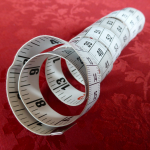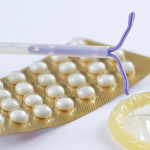In April, American scientists will begin testing a new contraceptive gel — for men. A combination of two synthetic hormones, it's been found to be effective in shutting down sperm production in preliminary testing. So perhaps soon men will have another option besides condoms and vasectomies. Guys, welcome to the world of modern contraception!
birth control
With all of the products that can be custom-made these days, why not condoms? Given the rampant fit-and-feel complaints of many men, will these new offerings actually reverse the declining trend of consistent condom use?
We didn't think that questioning the efficacy of contraception was still a thing. So we took a look at the data, just to be sure. And as we suspected, the facts show that the most-widely used forms of birth control don't just work, but when used properly they are incredibly effective.
The CDC has issued a new, unnecessary warning to women of childbearing age. Essentially, it tells them that if they're not using birth control, do not drink. At all. Not only does this seem unduly alarmist and hyper-precautionary, but it's also not firmly rooted in sound science.
Recently we wrote about the importance of family planning services and the significant role they play in public health. And now, a recent New York Times article covers Colorado s success in reducing unwanted pregnancy by giving away free long-acting reversible contraceptives (LARCs) to teenagers and low-income women as part of a program called the Colorado Family Planning Initiative (CFPI).
Dr. Oz questions the safety of the non-browning GM apple- for absolutely no reason, supplements containing amphetamines pulled off the shelves at major retailer, and teen contraceptive use on the rise, but still not quite enough.
If you scour a vast amount of data from various inputs versus various outcomes, you will eventually find some statistically significant linkage in the test sample but that often does not
The nation s most influential pediatricians group, the American Academy of Pediatrics (AAP), recently updated their recommendations for teen pregnancy prevention. The updated policy statement and accompanying technical report published in Pediatrics on September 29th state that sexually active teen girls should use IUDs (intrauterine
Plan B becoming available to girls of all ages was a huge victory for contraception availability advocates. However, lifting the age restrictions for Teva s Plan B One-Step


